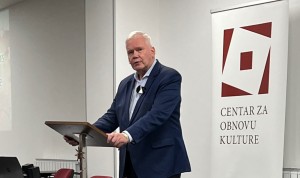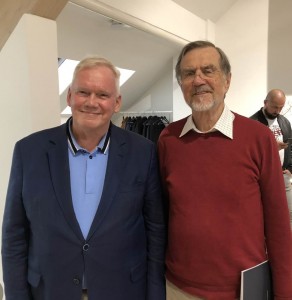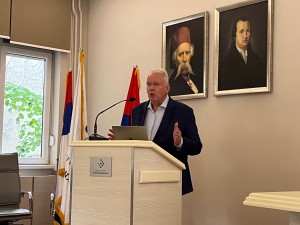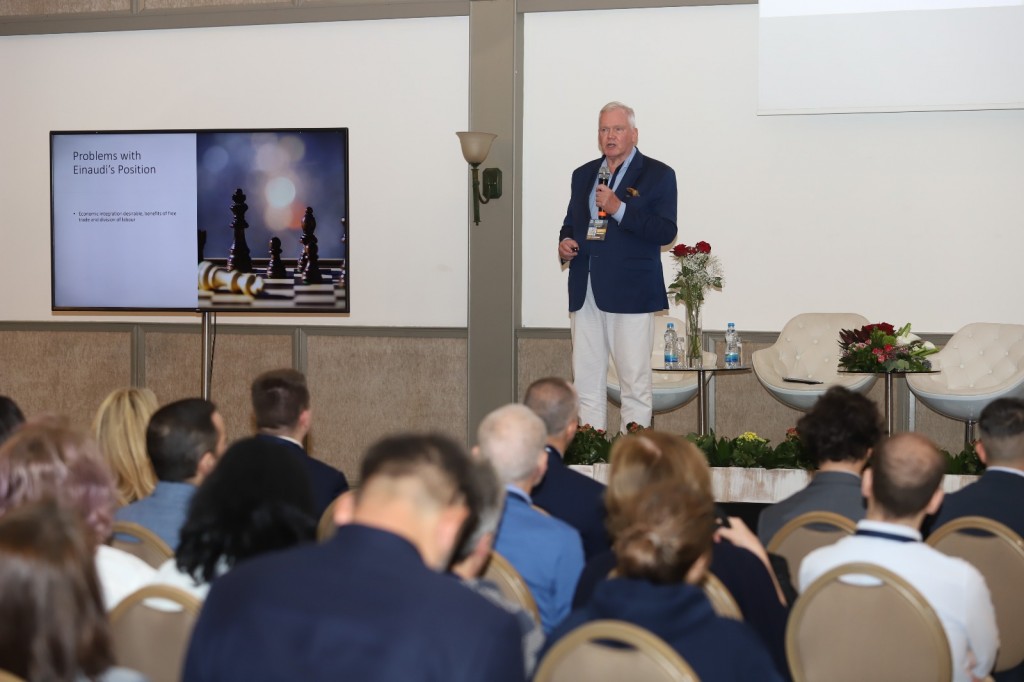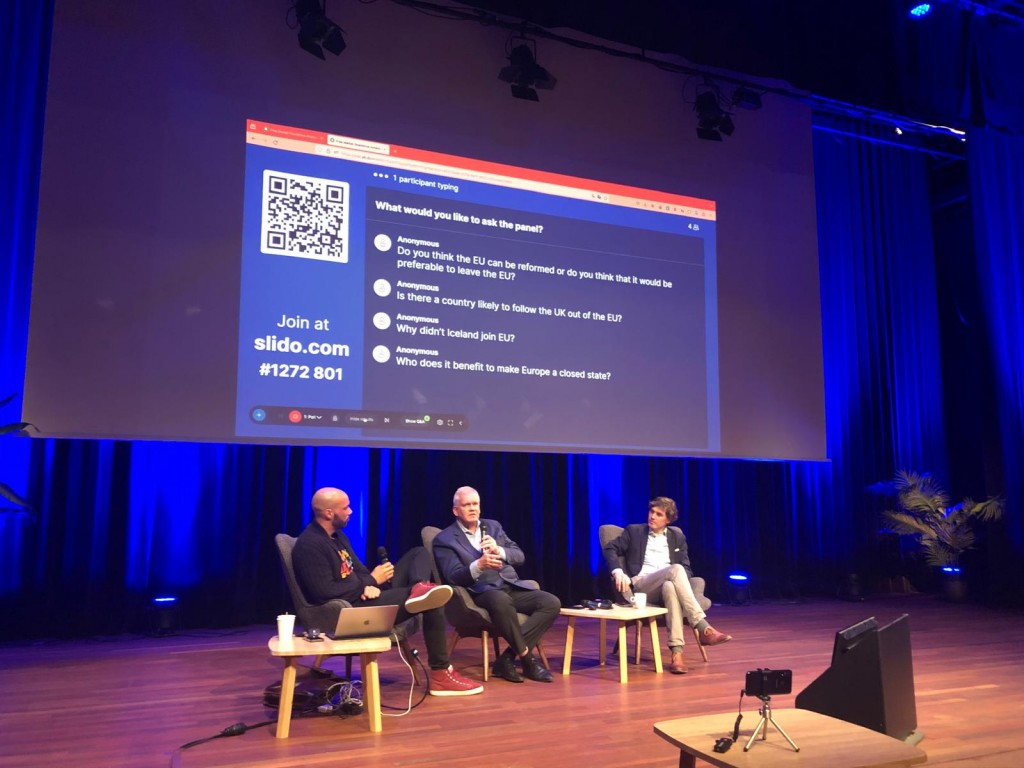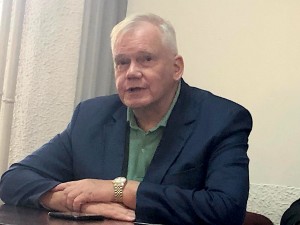 Hannes H. Gissurarson, Professor Emeritus of Politics at the University of Iceland, gave a talk at a conference held by the Faculty of Law and Economics at the University of Skopje in North Macedonia on 25 April 2024 about the free economy after the recent polycrisis. This is a term used for several crises that happen simultaneously and reinforce one another, creating a conundrum.
Hannes H. Gissurarson, Professor Emeritus of Politics at the University of Iceland, gave a talk at a conference held by the Faculty of Law and Economics at the University of Skopje in North Macedonia on 25 April 2024 about the free economy after the recent polycrisis. This is a term used for several crises that happen simultaneously and reinforce one another, creating a conundrum.
On the 2020–2022 Pandemic, Gissurarson said that it was something that had already happened and could not be changed. But it was crucial to know its origin in order to reduce the likelihood of it happening again. The Chinese authorities refused to provide any information on this, and this by itself suggested that the virus causing the Pandemic had leaked out of a laboratory in Wuhan.
On the War in Ukraine, Gissurarson said that Russian leader Vladimir Putin had twice received the wrong signals from the West. He had attacked George with impunity in 2008 and Ukraine, also with impunity, in 2014. Therefore he had thought he could attack Ukraine again with impunity in 2022.
On the 2007–2009 credit crunch, Gissurarson said that other nations could perhaps learn an lesson from the Icelanders who had limited the financial obligations of government, and instead made deposits priority claims in the estates of failed banks, thus averting bank runs and panic. Banks should operate under the same principle as other businesses that they would not always be rescued in hard times.
On the attack on freedom of thought and expression at universities and in the social media, Gissurarson said that probably this was a convulsion that would go away, just like the left-wing convulsion around 1968 had left nothing behind except some long-haired drug addicts.


